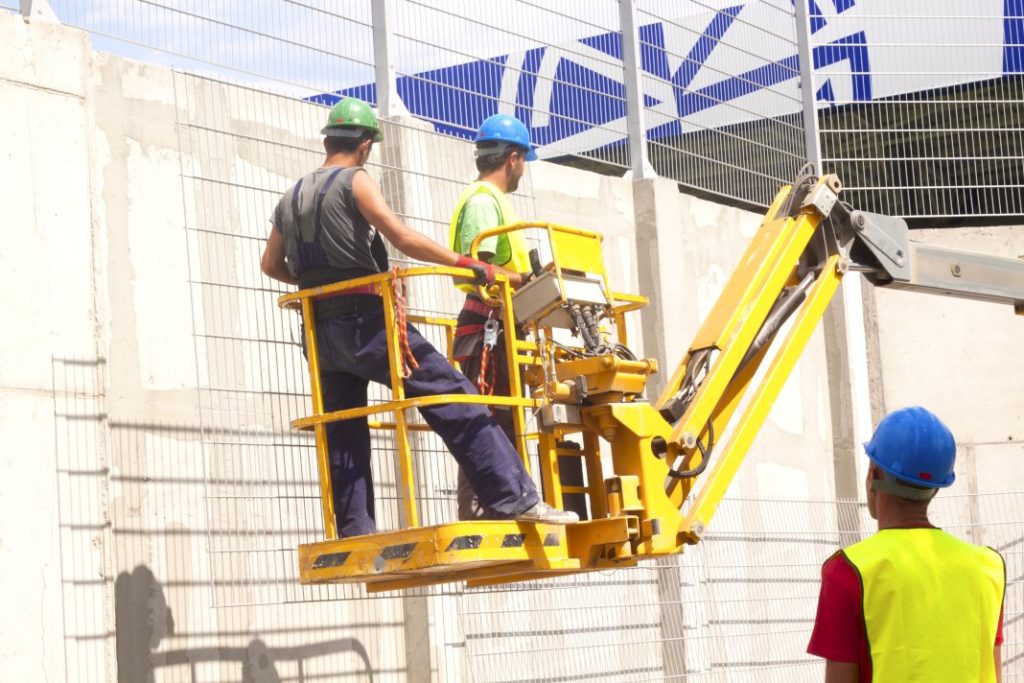- Starting a construction business requires comprehensive market research and a well-drafted business plan.
- Legal formalities, such as registration and adhering to regulations, are crucial for protecting your business.
- Securing adequate financing is vital for success.
- Building a competent team through communication, training, leveraging strengths, and prioritizing employee well-being is key.
- Investing in quality equipment can greatly impact efficiency and project timelines.
Starting a construction business is an exciting yet challenging endeavor that requires meticulous planning and execution. In a competitive market, laying a strong foundation is crucial for long-term success. To help you steer your venture in the right direction, here are five tips that will prove invaluable in your journey.

1. Consider Your Research and Business Plan
Begin your venture with comprehensive market research. This involves identifying your target market, analyzing the competition, and understanding the local laws that may affect your business. Knowing what you’re up against can help you differentiate yourself and offer something unique to your clients.
With research under your belt, the next step is to draft a business plan. This should outline your business objectives, projected financials, and marketing strategies. A well-constructed business plan will guide your efforts and make securing funding or attracting investors easier.
2. Consider the Legal Formalities
Neglecting the legal aspect of your construction business could lead to dire consequences. Ensure you register your business, obtain the necessary permits, and adhere to local and federal regulations. This will protect you from potential legal issues and boost your credibility in the market.
Additionally, consider the business structure that best suits your needs. Whether you operate as a sole proprietor, partnership, or LLC will impact your taxes, liability, and other factors. Consulting a legal advisor can help you make an informed decision.
3. Secure Financing
Capital is the lifeblood of your business, and securing adequate financing is paramount. Approach banks, financial institutions, or consider bootstrapping to accumulate the necessary funds. Be prepared with your business plan and financial projections, as these are the first things potential investors want to see.
Once you secure funding, practice frugality. The construction industry is notorious for its unforeseen costs and budget overruns. A financial cushion can help you navigate these uncertainties without jeopardizing your business operations.
4. Build a Competent Team
Your employees are the backbone of your business, and their performance will directly influence your company’s success. Keeping your team up-to-date with these changes can give you a competitive edge.
Here are tips to build a competent team:
Foster Communication and Collaboration
Strong internal communication and collaboration are key to a successful team. Encourage open dialogue, where staff can freely discuss ideas, issues, and solutions. Regular team meetings can provide a platform for this. In addition, utilize collaborative tools such as project management software. This fosters a transparent work environment where everyone is aligned with the project’s objectives and progress.
Emphasize Training and Skill Development
Continuous learning should be at the core of your team. Arrange regular training sessions that provide your staff with up-to-date knowledge and skills related to the construction industry. Also, promote learning opportunities outside the organization, such as workshops, seminars, and conferences. This enhances your team’s skills and keeps them engaged and motivated.
Leverage Employee Strengths
Understanding and leveraging your team’s strengths can significantly boost productivity and morale. When employees are assigned tasks that align with their skills and interests, they will likely perform better and show greater job satisfaction. Regular employee assessments can help identify these strengths and ensure individuals are assigned roles that best utilize their abilities.
Prioritize Employee Well-being
Lastly, employee well-being should be a priority. A physically and mentally healthy team is more likely to be productive and engaged. Encourage a balanced work-life schedule, provide health benefits, and create a positive work environment. Regular team-building activities can also foster camaraderie, improve team morale, and ultimately contribute to the overall success of your business.
5. Invest in Equipment
As you dive into the construction industry, you’ll soon realize that investing in the right equipment can make or break your business. For instance, investing in high-quality custom lifting equipment can increase efficiency and reduce project timelines. Specialized lifting equipment can drastically reduce labor costs and enhance safety, improving overall efficiency.
Other equipment includes tools, machinery, and vehicles. Be sure to invest in quality equipment that meets industry standards and is appropriate for your projects.
Final Thoughts
Starting a construction business requires a multifaceted approach that involves planning, financing, legal compliance, team building, and equipment investment. Your decisions in these key areas will largely dictate the trajectory of your business. Taking the time to address each aspect methodically can set the stage for a successful and profitable venture.


